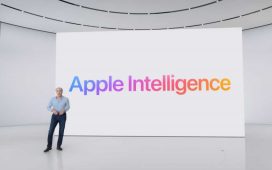It’s the bane of my existence: working with brilliant cloud computing subject matter experts who seem reasonable but end up being way too biased towards one set of technologies over another. I’m talking about people who prefer one public cloud over another, one database or AI system over another, and even on-premises versus public cloud.
You’ve probably seen this firsthand. The meeting starts by discussing how some technology will be leveraged before even debating the core requirements of the platforms or systems. “How do you already know that should be the target solution?” I often ask. They are either frustrated that I asked, or they ignore my question altogether.
Bias emerges
The camps typically form when team members attend too many vendor conferences and are taught how well a particular technology, public cloud provider, or even architecture (e.g., cloud-native) works and to become committed users of that tech.
Don’t get me wrong; this does not mean a specific technology stack is incorrect. At issue is that we’ve pulled back from working from the requirements to the solutions, and now things are the other way around.
The reasons that many people are “compromised” are easy to define. Everything works. You put up a technology stack to adapt to solve the problem; however, if it’s not the fully optimized solution, it will cost the business millions of dollars over its life cycle, and at some point, it will stop working and will have to be fixed.
There is no immediate punishment for picking underoptimized solutions. Therefore, success is declared, and the project leader moves on to other decisions with their bias reinforced by the false perception of success. This dysfunctional process makes things worse and creates so much technical debt.
I’m not suggesting that cloud architects are getting money under the table to pick one technology stack over another. I am concerned they have not opened their minds to other options, even significant changes such as leveraging traditional on-premises solutions over cloud-based ones or vice versa.
This is a training problem; cloud architects are not expanding their knowledge of other options and are focusing on a single solution pattern. Bias is also reinforced by the tech press, which often promotes one solution over another based on what gets the clicks. Older solutions are often overlooked, and people are uneasy that picking those solutions goes against the trend.
What can you do?
The best way to combat this is to first look at your own biases and ensure you’re considering all possible solutions and even those that are less understood. Many of you reading this article may not even realize you’ve moved too quickly towards one technology over another without first understanding the requirements thoroughly. Symptoms include thinking about a solution too early in the process.
This is a learning issue, both as to the correct process of moving to the most optimized solutions and seeing what other solutions are out there. Each technology pattern has positives and negatives and nothing is universally applicable. So, if you’re finding that you’re using the same technology stack repeatedly, you’re likely compromised and need to better understand the holistic world of technology and adhere to more rigorous requirements and selection processes.
Finally, look out for these biases while picking the right solutions. Call people out for assuming that one technology will be the best fit before understanding what the hell you’re doing. They should thank you when you build and deploy a fully optimized solution that is best for the business. That’s why we do this, correct?
Copyright © 2023 IDG Communications, Inc.












